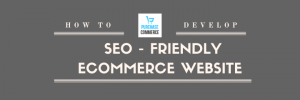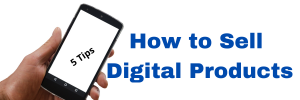Enterprise Ecommerce Software: Top 10 Best Platform Features
When do you need enterprise ecommerce software to sell products online? If you expect a high sales volume for your business, then you should opt for the enterprise ecommerce platform.
The enterprise ecommerce software provides you with superior control over managing a growing business. It offers advanced features and functions to handle a wide range of customers.
However, when it comes to choosing an enterprise ecommerce software, it is a tough decision to finalize one. Several factors should be considered in the process, way beyond the basic capabilities and functionalities.
How do you find an ecommerce software that possesses adequate features to manage a large-scale business? Here are the top 10 best platform features that are necessary to run your business on a large-scale.
Top 10 Enterprise Ecommerce Platform Features
1. Scalable and flexible ecommerce platform
Scalability is the foremost requirement for any enterprise ecommerce platform. As a large-scale business, your enterprise ecommerce platform should be scalable and flexible. Your platform components should be loosely coupled so that they can operate independently.
Loose coupling enables the platform to be elastically scalable. It adapts both the ‘workload increase’ as well as ‘workload decrease’ since the components can be flexibly integrated.
Two-dimensional scalability factor:
· Loosely coupled components are cloned as needed to handle additional demand, thus capable of scaling out.
· Components can be further decomposed into smaller functional units to provide additional leverage for scaling up to higher levels of load.
Purchase Commerce’s loosely coupled software architecture is composed of elements that can stand alone and are resilient to changes in the behaviour of components with which they collaborate. This factor greatly improves scalability, maintainability and
extensibility, thereby, making its ecommerce platform suitable for large-sized enterprise business.
2. Highly customizable template
You need to have a highly customizable template for your enterprise ecommerce platform as it is necessary to modify the design of your storefront to suit your business vertical.
You must stand out from the rest with a unique style and design when you're into a large-scale business which is only possible when you have a customizable theme and template.
For this, custom add-ons help you minimize the process of customization. Add-ons like changing image, navigation management, customizable testimonials to your users will help boost ecommerce sales. These add-ons must allow third-party plugins that empower you to work with a highly customizable template.
3. Personalized experience for users
One thing, the customer wants is engaging their interest and prioritizing their needs. Nearly 59% of online shoppers believe that it's easier to find an interesting product on a personalized online store.
You can make interactions faster and easier with personalization, which helps in increasing customer satisfaction and repeat visitors. For example, once a customer orders a product, sending a confirmation mail with additional products related to their order may help to buy that related product as well.
Web personalization also important for ecommerce sites, since Post-Click Landing Page brings more traffic to the website. The contents on your web or email should be dynamic that enables you to personalize your content for each individual user.
The most important personalization tool for ecommerce would be automated email marketing since it's an easy way of reaching a wide range of customers based on their buying journey.
4. Seamless integration support for third-party tools
Your new enterprise ecommerce platform must integrate all the features that you have with your existing platform and it should be flexible for your new business features. Your platform must be integrated with ERP which enables your business to act efficiently. ERP helps to manage inventory including order, shipment, and delivery management.
Secondly, automated marketing tools are the most important integration tools that help to promote your website. Payment gateway integration helps the customer to pay in multiple options and in the currency of their choice. Third-party service integration also helps to add new features that help in managing the ecommerce business process more easily.
5. User-friendly mobile commerce apps
Nearly 49% of the ecommerce purchase is made through mobile commerce. Most of the mobile users use Android that is, roughly 86.6% of the mobile apps. Even though Android dominates the mobile platform, iOS is also the most famous mobile platform.
Therefore, most of the businesses including ecommerce are now leveraging Android and iOS app development to grow their business and improve their revenues since it boosts revenue regardless of the business size.
Also, if you want to have a native-like app that is built with a low-cost budget and works in almost all platform, then PWA must be the right choice. PWA will effectively engage your customers since it can be launched in your home screen with the ‘Add to Home Screen’ option and it receives the push notification.
6. Cloud-friendly ecommerce platform hosting
Cloud-based hosting refers to using the virtual resources of the clustered server to support all the factors of your ecommerce site. With cloud hosting, all services like load balancing, security, hardware resources, and network maintenance are all available virtually to you.
Here are a few reasons why you should use cloud hosting for your ecommerce platform:
· You pay for resources only when you use them.
· If your ecommerce business focusses on the global market, cloud hosting helps to deliver the content faster with the dynamic response to customer demands.
· It also provides scalable and secured communication over a network.
· It provides an end-to-end solution for an ecommerce platform.
7. Faster page loading experience for users
According to statistics, 47% of customers expect your web pages to load in less than 2 seconds. If it exceeds 3 seconds, nearly 57% of visitors will leave the ecommerce website. Hence, when a web page loading time is high, it affects the user experience, SEO and also decreases the conversion rate of your business.
There are numerous reasons why your website lags in loading time - high server loading time or, not have enough cache space, or when image size is larger will result in low page loading time. In such cases, using local memory for cache and optimizing the cache will help to decrease the page loading time.
Also, using Content Delivery Network such as Amazon’s CloudFront, you can make your site to load faster for all the visitors worldwide.
8. Highly secured ecommerce software solution
Reports say that ecommerce sites experience 32.4% security attacks on various forms. So, it is necessary to secure your customers' details from these kinds of vulnerabilities.
Major challenges while addressing the ecommerce security issues are identifying and patching vulnerabilities, managing network devices, preventing ransomware, and phishing attacks.
In the ecommerce website, hosting is where every activity is carried out, so you must use a secured hosting environment. When you have single point storage, the attack will be severe, thus, it is better to opt for cloud storage. Usually, cloud-based hosting provides high security.
9. Onetime payment with a lifetime license model
The cost of the ecommerce platform mostly depends on its features and functionalities that you have preferred. When you’re into a large-scale business, you need to consider the cost you are going to invest in the ecommerce platform.
Some of the ecommerce platforms will be based on licensing fees, while some others charge fees depending on the sales and traffic that your website produces. Most of them offer a monthly payment which can be paid in an ongoing relationship. There are also some ecommerce platform providers who charge you based on the development and marketing team that you choose.
If you choose a scalable and flexible ecommerce platform that is available as a one-time payment with a lifetime license model, you can reduce your ongoing monthly expenses and focus more on your growing business. Purchase Commerce is one such ecommerce solution where you don't need to pay any monthly subscription fee like in a SaaS model.
10. Annual maintenance & support solution
It's a crucial process to maintain your ecommerce website more than just launching it. It needs to manage the customer queries and complaints, manage the data present in your site, data analysis, and monitor your website for any ongoing service.
Ecommerce platforms must be flexible and easily manageable while updating inventory, retrieving user credentials, optimizing the speed of your web page, etc.
Effective support & maintenance service from the ecommerce platform provider will help to improve the loading speed and security of the website. There must be a periodical review to ensure whether your ecommerce website is working properly.
Ecommerce platform should come with free maintenance and support services help you save cost which otherwise requires maintenance service from other providers.
A Powerful Enterprise Ecommerce Software
Before choosing an enterprise ecommerce platform, you need to figure out what are all the requirements for your website. Your ecommerce platform must match the growth of your business and provide a wonderful customer experience.
When it is a large-scale investment, you need to explore every ecommerce provider to choose the one which is suitable for you in all the aspects. Purchase Commerce is available as a one-time payment platform with a lifetime license subscription model. It's architected with a loosely coupled system that makes your enterprise ecommerce store very much scalable depending on your growing business.









